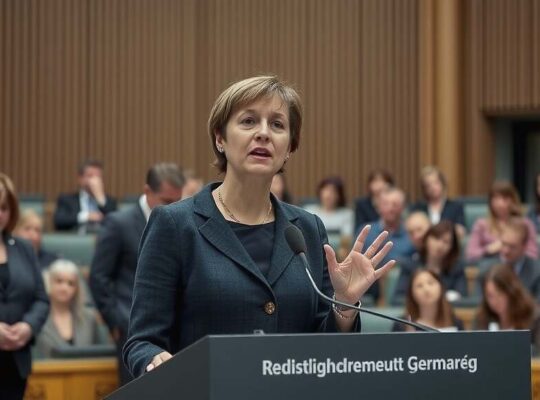The debate surrounding Germany’s proposed pension reform package has intensified, with Yasmin Fahimi, chair of the German Trade Union Confederation (DGB), launching a forceful critique of the Junge Union’s (JU) stance. Fahimi accused the JU of propagating a misleading narrative that the measures disproportionately burden younger generations.
The core of the disagreement lies in the government’s plan to stabilize the pension level at 48 percent beyond 2031. While the JU frames this as a hardship for young workers, Fahimi argued it provides crucial stability and planning security for future generations. She emphasized that the focus on contribution rates has arguably overshadowed the fundamental issue: the need to broaden the base of contributors.
“The assertion that securing the pension level comes at the expense of younger generations is a cheap and factually incorrect claim” Fahimi stated in a recent interview. She believes the primary lever to ensure long-term sustainability isn’t solely about curbing existing contributions, but about increasing the number of individuals contributing to the system.
To this end, Fahimi proposes a rapid and straightforward solution: compulsory inclusion of all self-employed individuals under the age of 35 in the German pension insurance scheme. This move, she contends, would significantly expand the pool of contributors and alleviate pressure on current workers.
Further, Fahimi acknowledged the potential need for a more substantial contribution from the “Boomer generation” in retirement, suggesting a temporary increase in tax subsidies specifically targeted at this demographic for the next decade or so. This proposal highlights the increasingly difficult political choices facing policymakers as they attempt to reconcile the demands of a rapidly aging population and a shrinking workforce, raising questions about intergenerational equity and the long-term affordability of the German welfare state. The debate underscores a growing divergence in perspectives on how to address pension sustainability, moving beyond simple adjustments to contribution rates and towards more potentially controversial systemic changes.












